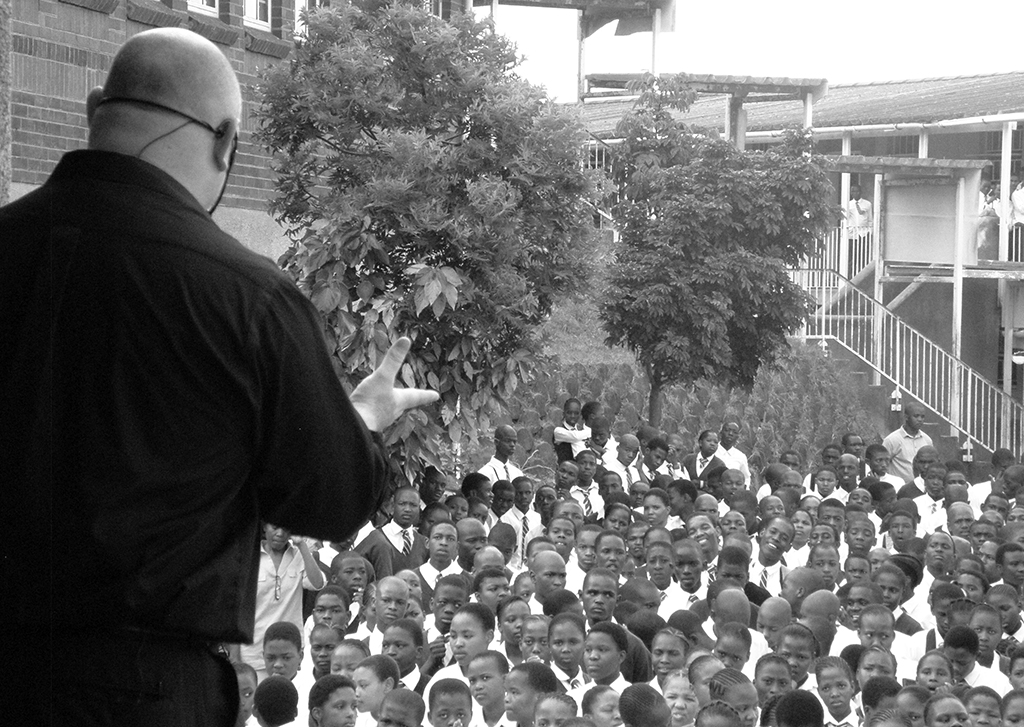By Adrian VanVactor,
FaithSearch Evangelist
Saying that 2020 has been an interesting year for ministries and churches worldwide would be a gross understatement. Doing church during the pandemic has changed radically. Technology now plays an essential role in feeding the body of Christ.
Not many years ago, churches began streaming their services to expose more and more people to their teaching and a fellowship experience with other believers. Likewise, in parts of the world where gathering as believers is more difficult or even illegal, technology has made it possible for these fellow members of Christ’s body to attain better Bible study tools, better preaching, and at times even some fellowship, albeit limited. The growth of the body of Christ in these parts of the world has been enhanced by modern technology.

When it became evident the Lord was calling me into ministry, specifically into evangelism, I did what I knew best. I went out into the streets of my hometown and dialogued with strangers. As I grew in my walk and developed an expanded ministry strategy, I realized that some outreach approaches are more effective than others.
I started touring overseas with a focus on the more unreached parts of the world: South Asia, East Asia, and the Arabian Peninsula. I discovered that the use of live performing arts was more effective in some situations than technology or street preaching. Before I became a believer, I was an active competitor in the performing art of illusion. At nineteen years of age, I even won the international event in Las Vegas. The Lord used that skill to help me reach hundreds of thousands of young people in regions mostly closed to the Gospel.

I am often asked whether God really uses less traditional methods—like the performing arts or technology—to change lives? I wasn’t sure at first. We know that faith comes by hearing the message concerning Christ (Romans 10:17). Jesus said that God could make even the rocks cry out the truth if necessary (Luke 19:40).
The spiritual fruit I experienced gave me the answer. Like the apostle Paul, I resolved to “become all things to all men, that I may by all means save some” (1 Corinthians 9:22). In whatever way His truth is communicated, God is at work.
I’ve been on fifty international tours, primarily among the most-unreached people groups on earth. I have openly proclaimed the Gospel in situations and in venues where others have not, simply because I used a different platform, a tool, to gain permission to share God’s truth.
Forty years ago, Dr. Don was in living rooms using a white board. Now he uses PowerPoint® graphics, videos, microphones, and projectors to share the Gospel with evidence. From Gospel tracts to the Jesus Film®; from living room sharing to large multimedia-amplified auditoriums; church and ministry methods have indeed evolved over time, often with the flow of the world’s technological development. However, the purpose remains the same: the body of Christ using whatever means and platforms are available to share the message concerning Christ.
The same is true for me in performing arts. I create an effect on stage in order to communicate a message of truth. I explain very clearly what I am doing and how I am doing it. No one is being misled. In fact, eyes and minds are opened.
It has not been easy; I’ve had plenty of pushback. Misunderstanding the art of illusion, some fellow believers and Christian leaders think it is unbiblical, a tool for the enemy. In the next issue, I will distinguish “the art of illusion” from “magic,” and delve into the biblical case for using it to reach the lost.


